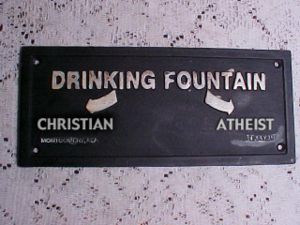Is Education Reform a Faith-Based Belief System?
The latest entry in the Bridging Differences blog is a fascinating look at the belief system guiding the most fervent advocates of modern education reform. Michael Petrilli of the Thomas B. Fordham Institute raised some interesting arguments.
Mr. Petrilli writes:
Rather than accept a future of low-skill, low-wage work for our impoverished young people, we aspire to build their "human capital"--their knowledge, skills, capabilities, talents, habits, character, however you want to phrase it--so that, among other things, the labor market will one day repay their contributions to society with a wage that far exceeds any minimums. I acknowledge that not all of our young people--low-income or otherwise--will make it to the level of a high-skilled worker, but surely we can help most of them learn valuable, remunerative skills that allow for self-sufficiency and the chance to make a significant contribution in the workplace and in the community.But here's the thing, Deborah: I can't figure out how to get from here to there except through better schools. Whatever the question, stronger schools seems to be the answer:
He goes on to suggest:
Do you in fact not believe that tomorrow's schools, like those of yesterday, can be

